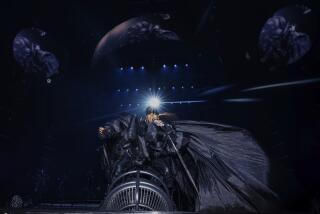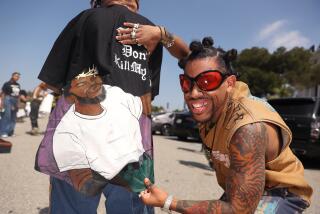Review: At Rolling Loud, a hip-hop generation gap turns into a chasm
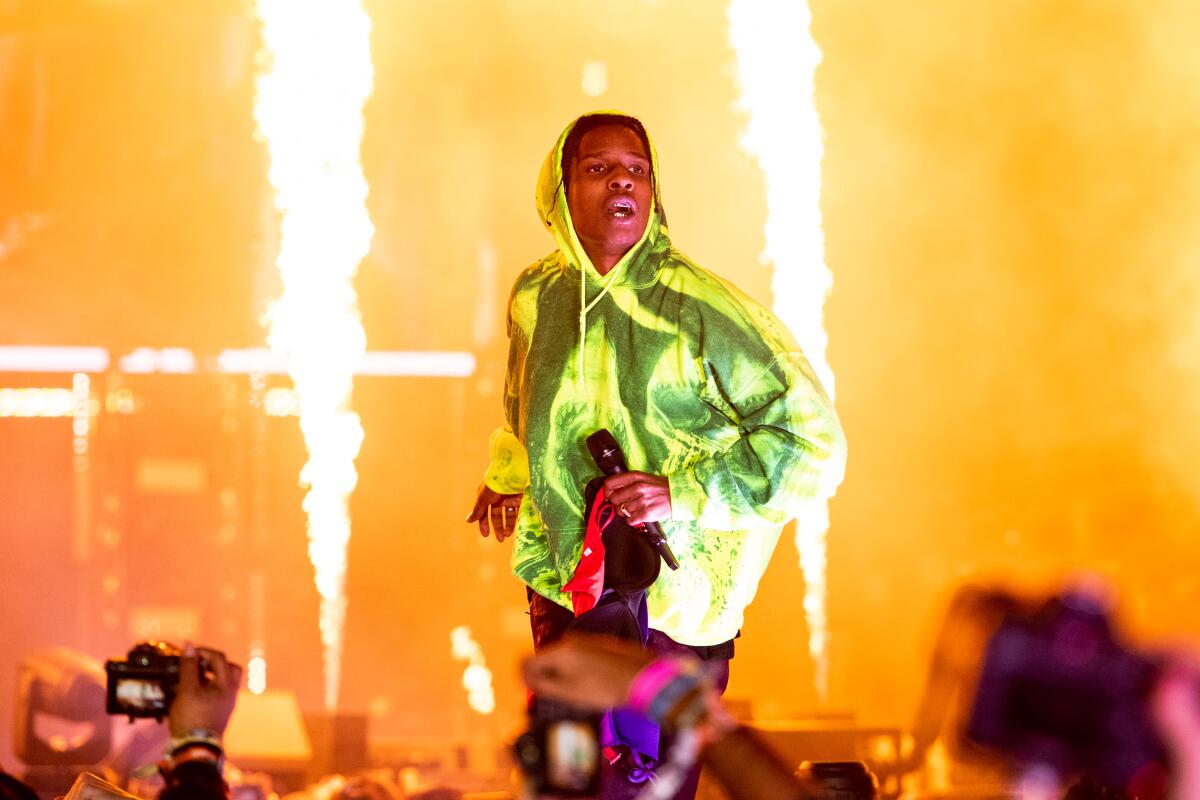
It wasn’t Drake at Camp Flog Gnaw. But for Chance the Rapper, the moment no doubt came closer than he would’ve liked.
Around 9:15 on Saturday night, minutes before Lil Uzi Vert was set to perform at the Rolling Loud festival over the weekend, a voice came booming over the sound system at Exposition Park to announce that the rapper’s plane had been held up en route to Los Angeles. As a result, Chance, who’d been scheduled to headline, would perform next, the voice added — at which point thousands of fans began hurrying away from the main stage with such determination that a barrier along one side of the viewing area almost toppled over.
The apparent renunciation of a popular hip-hop artist — in this case a guy who won Grammy Awards in 2017 for best rap album and best new artist — inevitably recalled Drake’s being booed when he (as opposed to Frank Ocean) was revealed as the much-hyped mystery headliner at last month’s Camp Flog Gnaw festival at Dodger Stadium.
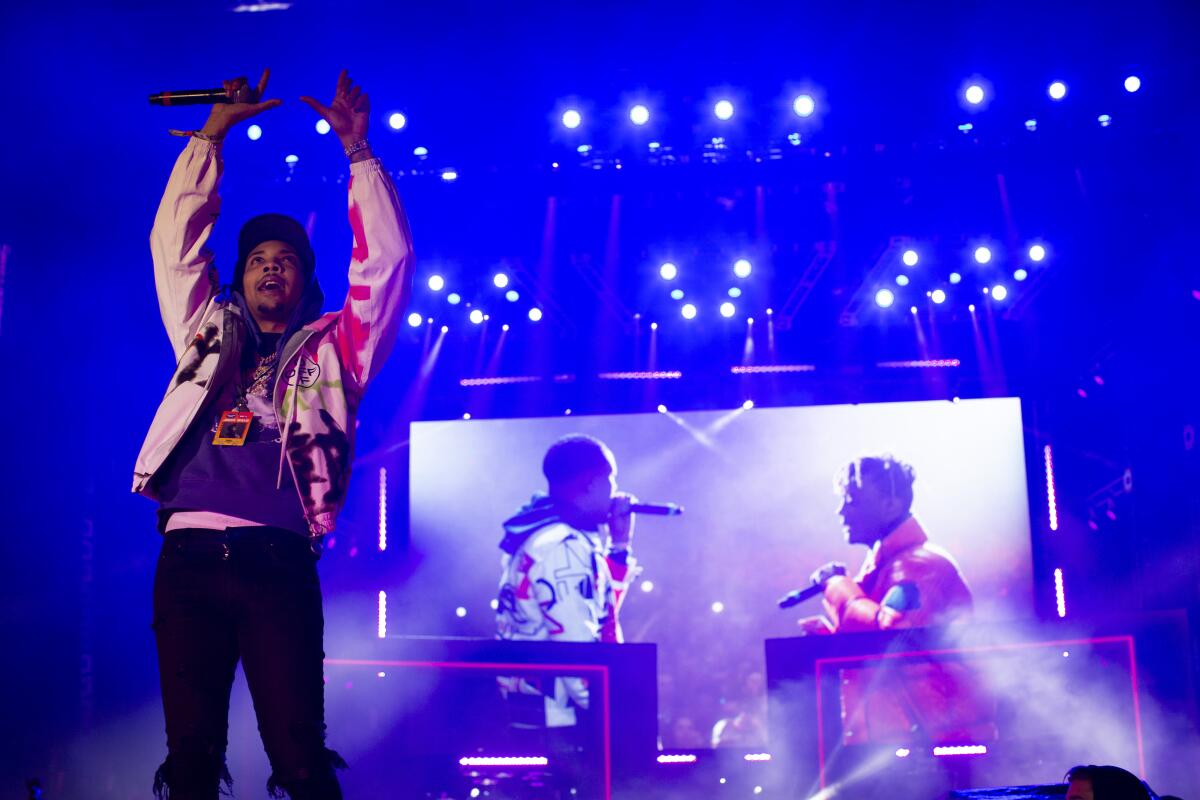
But even if a respectably sized crowd eventually gathered to watch Chance, the clear lack of interest among many at Rolling Loud emphasized a schism opening up in hip-hop, one that shows how quickly the genre is moving right now.
With his love of intelligible words and his devotion to neatly defined structures, Chance at age 26 embodies a reassuringly familiar idea of rap. And what Rolling Loud, now in its third year as a traveling event, represents is the shock of the new: noise over order, charisma over lucidity, bad vibes over good.
You saw it in 23-year-old Playboi Carti, bounding across the stage like a young Iggy Pop as he led the audience in a bleary chant about being a rock star. You saw it in 20-year-old Pop Smoke, rapping in his throaty bellow over a wobbling bass line that sounded close to collapse.
And you saw it in Lil Uzi Vert, 25, when he finally turned up near midnight and launched into an appealingly bratty emo-rap tune, “Do What I Want,” with enough sneering repetition to bear out its title. Later, Uzi did his throbbing new single, “Futsal Shuffle 2020” — about the widespread emulation of his grungy appearance and minor-key sound — while somehow making its accompanying dance routine look cool.
Held Saturday and Sunday across three stages inside and around Banc of California Stadium, Rolling Loud — which drew 60,000 people per day — wasn’t merely making a point about youth, though that was certainly part of a festival that featured performances by teenagers including Lil Tjay, Lil Mosey, Lil Pump and NLE Choppa. (Lil Tecca, the 17-year-old rapper behind the top five pop smash “Ransom,” was a no-show, as was Meek Mill — logistical snags to go with the long lines and bottlenecks that affect every festival of this scale.)
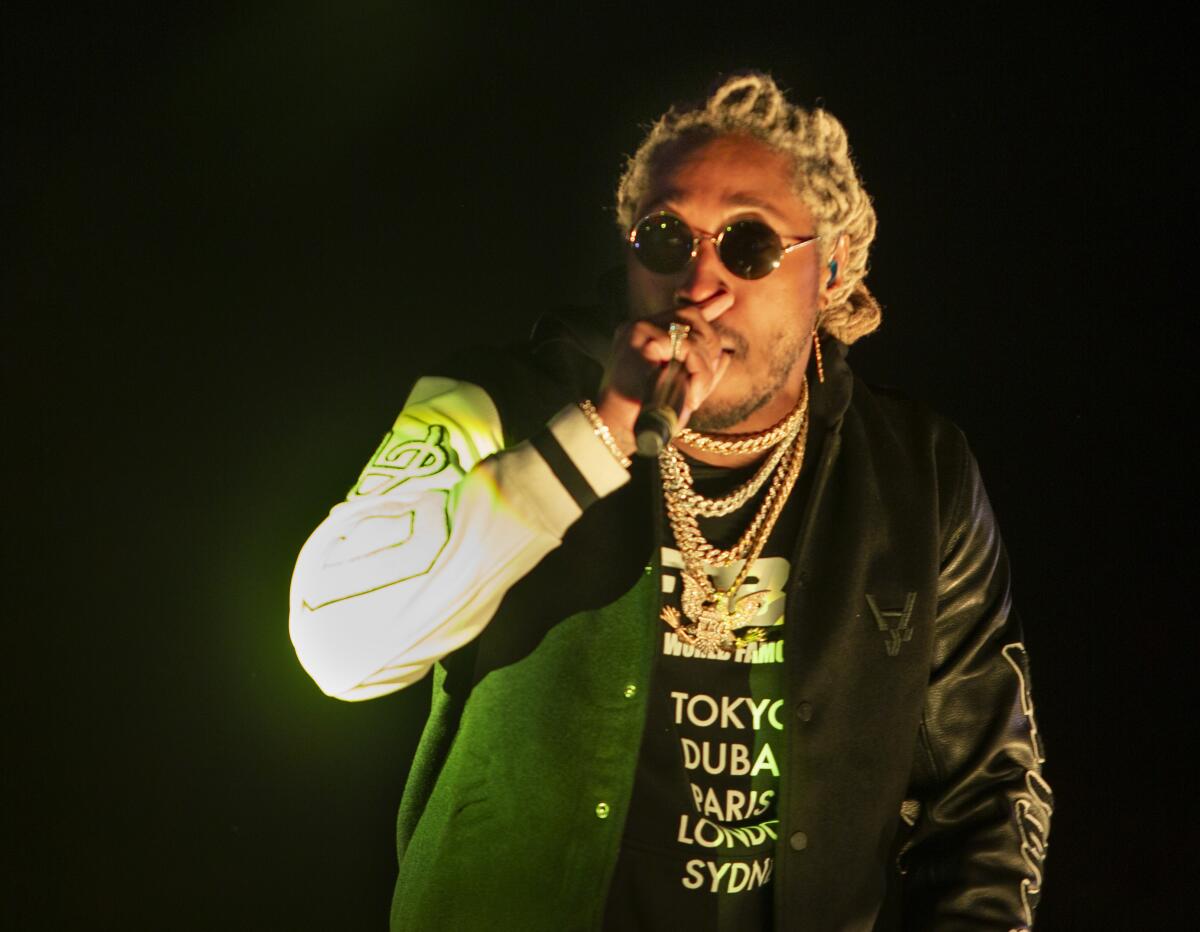
At the end of his set, Lil Mosey left the crowd with some encouraging words about how he wasn’t even doing this three years ago, and just look how far he’d made it.
But the break from tradition — and the real source of the problem for Chance, who announced on Instagram on Sunday that he’d called off his 2020 tour behind this year’s coolly received “The Big Day” album — was also a matter of temperament and of worldview. Where Chance’s gospel-attuned music is explicitly optimistic — here he was backed by a buoyant live band complete with horn players and backup vocalists — stuff by Playboi Carti and other au courant Rolling Loud acts such as Lil Baby, Gunna and Future (a veteran trendsetter at 36) is darker and more fragmented. It’s not without excitement; Playboi Carti’s latest album, “Die Lit,” surrounds his squeaky mumbles with jagged beats that gather a sense of reckless momentum. Even at its liveliest, though, the music deals with depression and substance abuse, and not always with the kind of moral clarity we’ve come to expect from a Jay-Z or a Kendrick Lamar.
Indeed, one of the marquee attractions at the festival was a tribute to Juice Wrld, the 21-year-old rapper who was supposed to perform at Rolling Loud before his death last week. (Police haven’t specified a cause, though Juice Wrld was reported to have suffered a seizure at a Chicago airport, where a plane he’d flown on was found to be carrying drugs.)
The tribute, for which Juice Wrld’s DJ served as host, featured testimonials from friends and collaborators including YBN Cordae, G Herbo and Benny Blanco, as well as the late rapper’s girlfriend, Ally Lotti, who told fans that Juice Wrld would’ve wanted them to “take any negative thing in your life … and change that to a positive situation.”
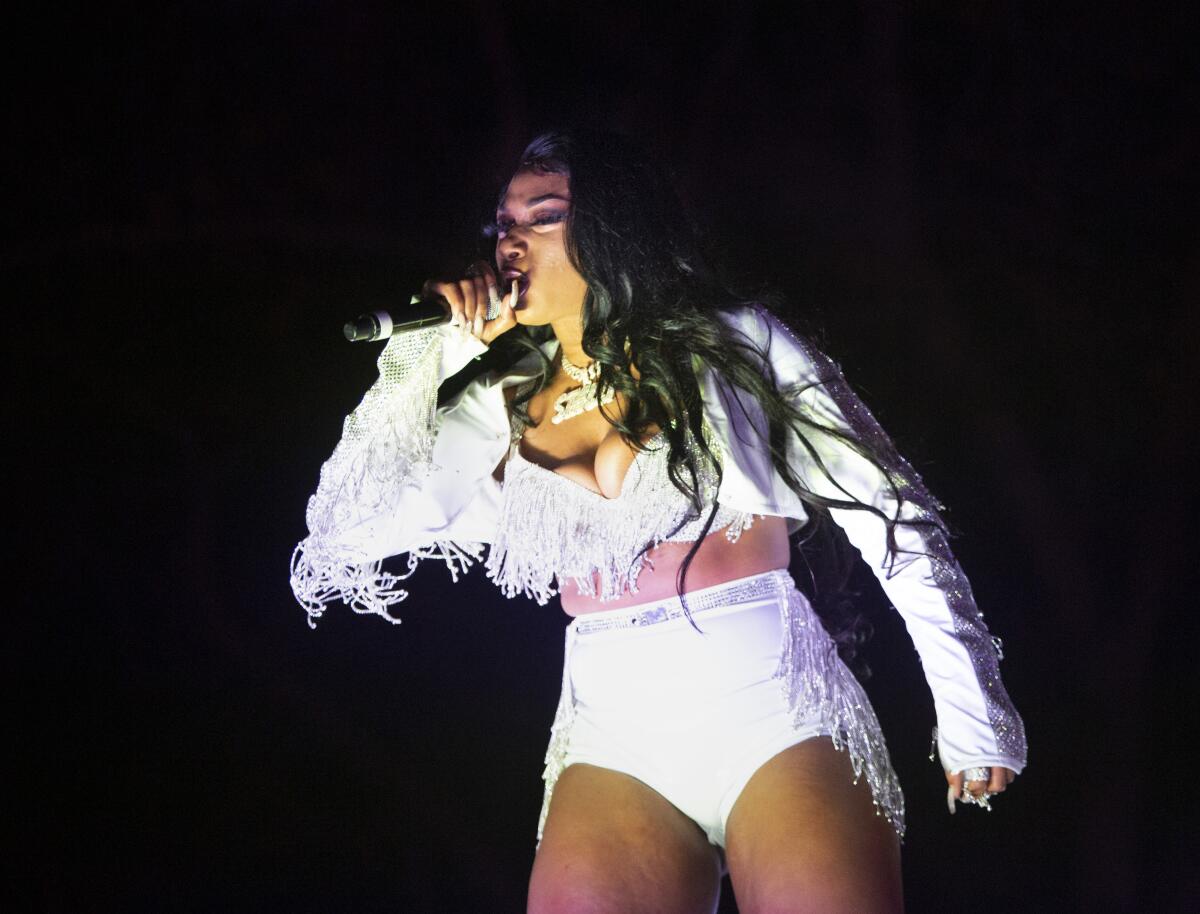
Yet Juice Wrld’s music — like that of several other artists, including Lil Peep and XXXTentacion, whose recent deaths were variously memorialized at Rolling Loud — wasn’t always about positivity, even when it sported gleaming pop hooks; he connected because he unsparingly described the psychic toll of feeling empty inside, as one of his songs put it. The mosh pits that met so many performers over the weekend, from a flexible eccentric like Young Thug to a committed nihilist like Chief Keef, were about abandon, of course. But they were also a necessary form of release — as punk an outpouring as Lil Uzi Vert’s zippered skinny jeans.
That Chance encountered trouble in this environment isn’t to say that Rolling Loud permitted no other styles or attitudes. YG brought his slightly modernized take on classic West Coast gangsta rap to the festival for a convivial performance that included an extended cameo by Roddy Ricch, the young Compton up-and-comer whose new album just debuted at No. 1. Another Angeleno, Blueface, made a show of doing the Crip walk to “The Next Episode,” Dr. Dre and Snoop Dogg’s fondly remembered track from the late ’90s. (The Game was also added to the lineup following Meek Mill’s cancellation.)
ASAP Rocky, fresh from the bizarre diplomatic conflict in which President Trump helped spring him from a Swedish detention center, closed the festival on Sunday night with a characteristically eclectic set in which he seemed most committed to collecting discarded bras from female audience members.
A few hours before Rocky, though, came Megan Thee Stallion, one of only a handful of women who performed at Rolling Loud and one of its most authoritative acts overall, with a low, clipped delivery that refreshed the formula of densely composed lyrics set to a steady beat. Her music about sex and power was an argument that not everything in hip-hop has changed — and her presence onstage a reminder that some things still need to.
More to Read
The biggest entertainment stories
Get our big stories about Hollywood, film, television, music, arts, culture and more right in your inbox as soon as they publish.
You may occasionally receive promotional content from the Los Angeles Times.
